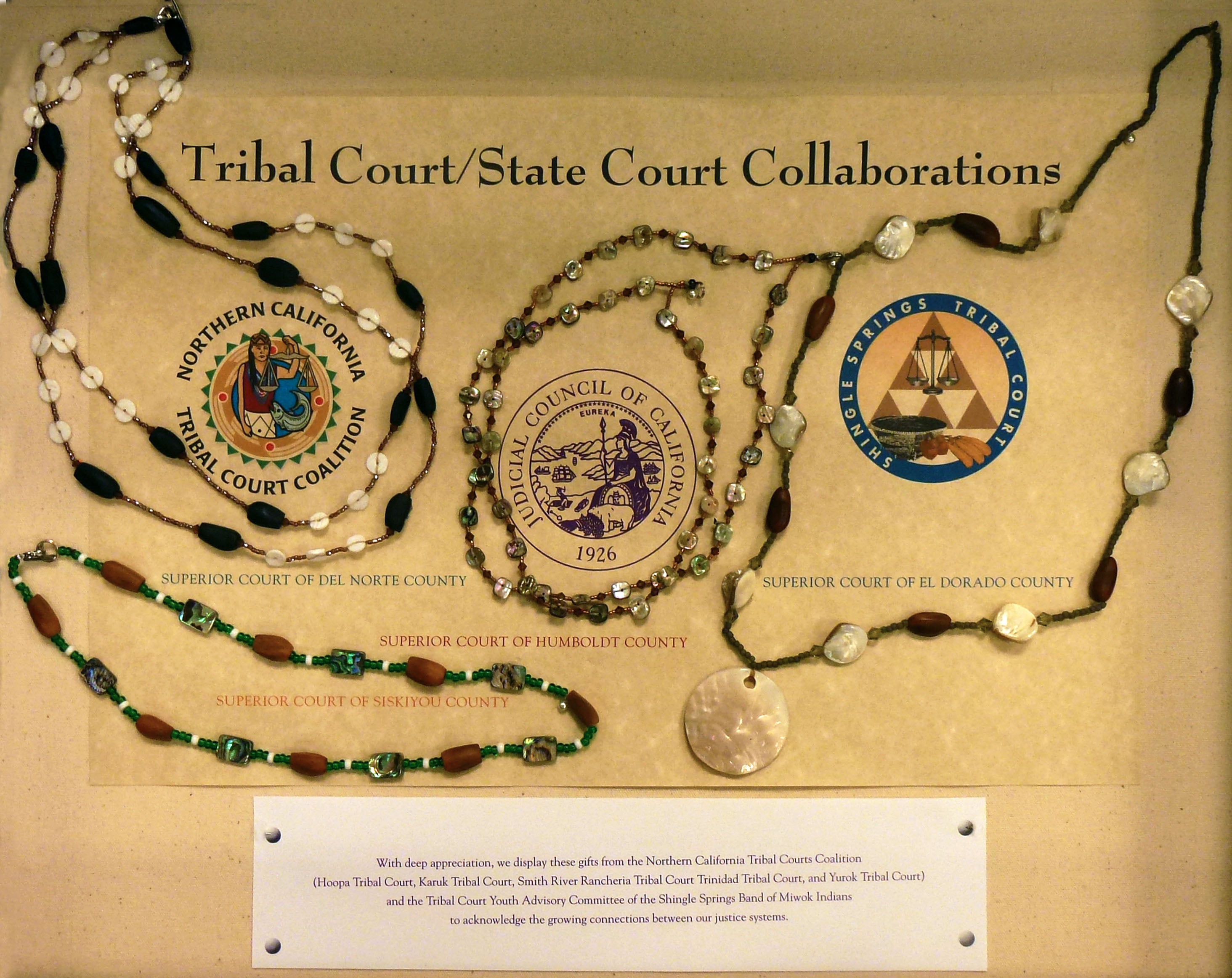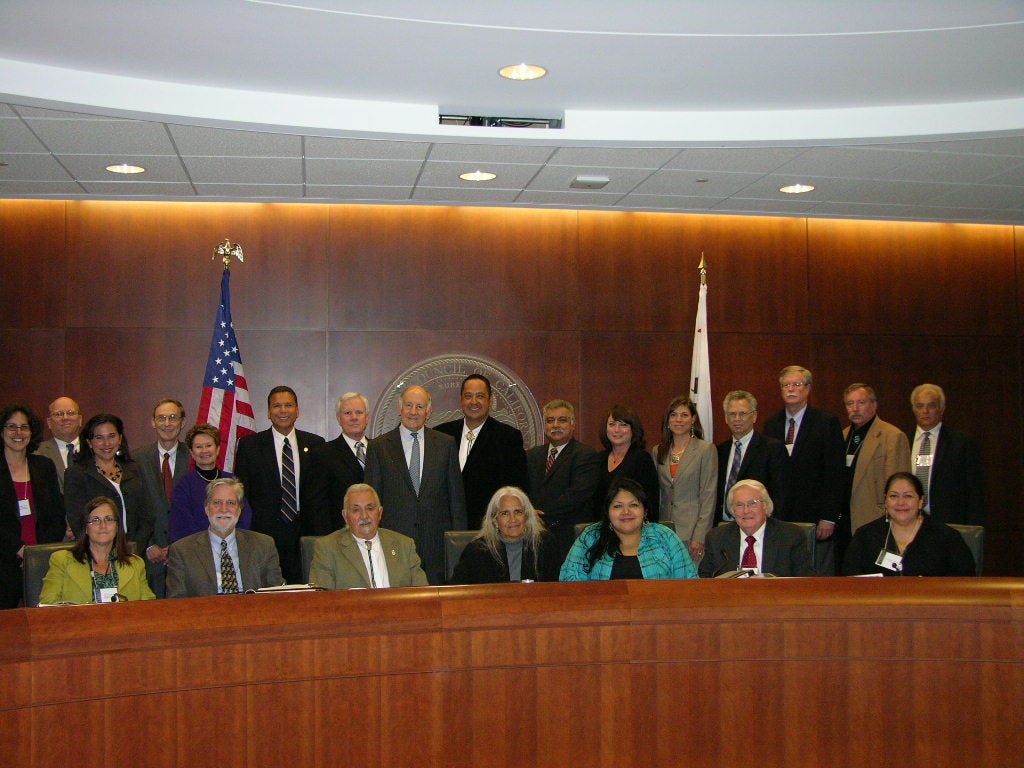Council's Tribal Court-State Court Forum Celebrates 15th Anniversary
Watch video on YouTube
The Tribal Court–State Court Forum marked its 15th anniversary this week, a landmark collaboration to establish California tribal and state courts as equal justice partners in serving the state that's home to the most Native American people in the nation.
The group began as a meeting of tribal court and state court judges statewide who gathered to study and provide recommendations on issues such as enforcing protective orders and judgments; jurisdictional issues; and how to ensure access to justice in tribal areas involving issues like domestic violence and sexual assault. The coalition provided a forum for members to share information, resources, and education.
"For tribes across the state of California, it gave us the opportunity to come together and use our voices as one," said Chief Judge Richard C. Blake of the Hoopa Valley Tribal Court and Redding Rancheria Tribal Court. "It spoke volumes to the commitment of the state of California on their willingness to work with tribes in developing this type of agreement."
The California Tribal Court/State Court Coalition Becomes the Tribal Court-State Court Forum
In 2013, the Judicial Council of California made the Tribal Court-State Court Forum a formal advisory committee. In doing so, the Judicial Council acknowledged tribal sovereignty and recognized tribes as distinct, independent political nations with authority to establish their own form of government, including tribal justice systems.
Today, the forum makes recommendations to the council for improving the administration of justice where jurisdiction by the state judicial branch and the tribal justice systems overlap.
"I’m thankful to those who spearheaded the creation of the forum. Its work and dedicated members over the last 15 years have helped the judicial branch be more effective and culturally responsive to our tribal communities," said Chief Justice Patricia Guerrero. "This collaboration shows how we can work together to make our court system better for everyone."
Forum Members Reflect on Importance of Ongoing Partnership Between Tribal and State Courts and Entities
The advisory committee is currently comprised of 30-plus members, including tribal court judicial officers, state court judicial officers, court representatives in areas with tribal courts, and directors and advisors from state government entities.
"It's a massive task to construct a system like this and make it responsive to all the issues of the day, and to deal with the people who appear in front of you, the law, and with each other," said committee co-chair Judge Abby Abinanti, Chief Judge of the Yurok Tribal Court. "People who aren't from similar backgrounds bring different things, and it's very surprising to see how you try to blend all of this into one mechanism."
"We're really lucky in Humboldt County and maybe in other places too that tribes are willing to share their culture with us, which is beautiful in how they resolve disputes, what they did, and what they expect from others," said co-chair Judge Joyce Hinrichs (Ret.), who served in the Humboldt Superior Court. "There's a lot to learn that would benefit our state court systems as well as partnering in ways that would benefit tribal members to be the best and most qualified people they can be, contributing to their tribe, culture, and greater community."
Judge Kristina Lindquist of the Sacramento Superior Court has served on the forum for almost four years, since she took on dependency assignments including those involving the Indian Child Welfare Act (ICWA). "I hope that the forum continues to expand so that more people have the opportunity to be exposed to these issues [in the tribes and courts] and remember that they exist," she said. "It's nice to be able to share these relationships in solving issues that are confronting state and tribal courts equally and work on serving the public in an effective way."
Since that first meeting he requested from Chief Justice Ronald George, Judge Blake still serves as a member of the Tribal Court-State Court Forum and remains proud of its presence and growth. He said, "The ability to work hand-in-hand with the state of California and the state court bench has been remarkable. I think we've shown this country that if most courts and tribes in the state can do this, every state can do it."
*Photos and meeting footage courtesy of Judicial Council. Photo of Judge Suzanne Kingsbury and Judge Christine Williams from Mountain Democrat / Krysten Kellum.



